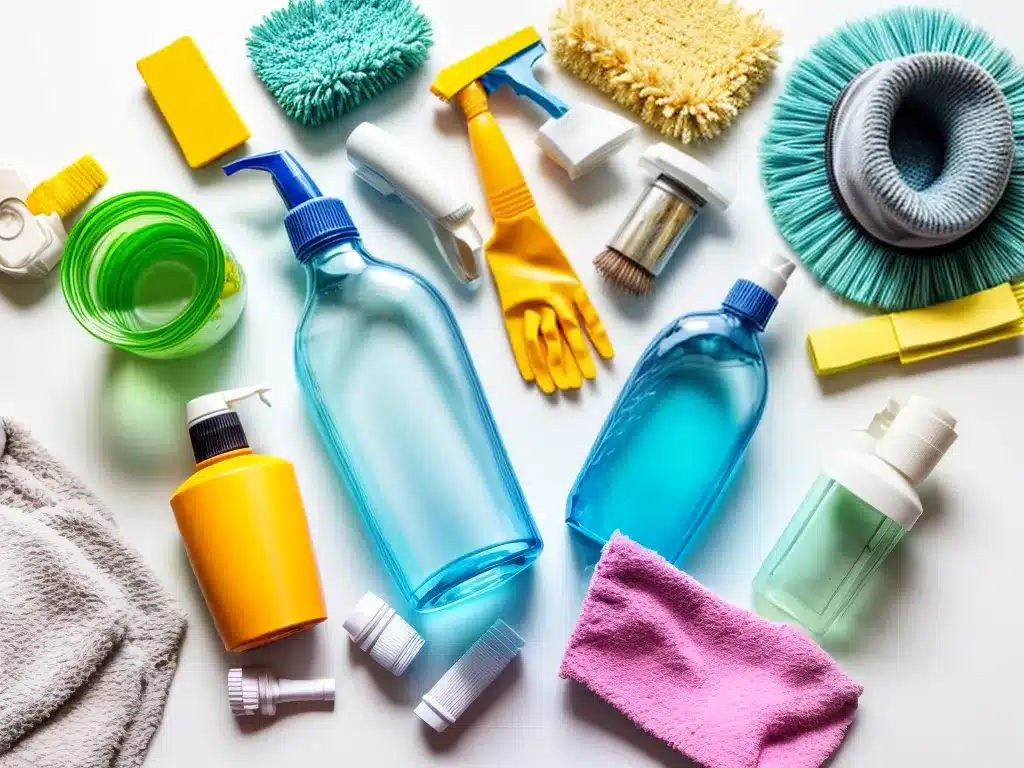Going zero waste with your cleaning routine can feel daunting, but it’s easier than you think! Here are some simple swaps to help you ditch disposables and create an eco-friendly home.
Replace Paper Towels
Paper towels are incredibly wasteful. A better option is to use reusable cloths and towels.
-
Swap paper towels for flannels and microfiber cloths. They can be washed and reused endlessly.
-
Cut up old t-shirts and socks to make cleaning rags. These make great reusable paper towel substitutes.
-
Try Swedish dishcloths. These cellulose and cotton cloths are highly absorbent and compostable.
-
Use bamboo paper towels as a disposable alternative. They are sustainable and break down easily.
Swap Disposable Wet Wipes
Wet wipes also create tons of waste. Luckily, there are reusable options available.
-
Use reusable cotton rounds instead of disposable cotton balls and pads.
-
Make DIY reusable wipes by cutting up old clothes and adding a mixture of water and essential oils.
-
Purchase bamboo reusable wipes. They are soft, absorbent and washable.
-
Soak paper towels or cloths in a cleaning or DIY multipurpose solution to make your own wet wipes.
Ditch Plastic Scrubbers
Plastic scrub brushes and sponges aren’t great for the oceans. Natural options work just as well.
-
Use natural loofahs as an effective scrubber for dishes and surfaces.
-
Try using coconut coir as an alternative to plastic scouring pads. It’s tough and naturally antibacterial.
-
For heavy-duty scrubbing, use walnut scrubbers made from biodegradable materials like loofah and sisal.
-
Opt for natural bristle brushes made from plant fibers, instead of plastic bristles.
Make Your Own Cleaners
You can make effective DIY cleaners using simple pantry ingredients. This reduces plastic waste from cleaning product bottles.
-
An all-purpose cleaner can be made with baking soda, vinegar, lemon and essential oils.
-
For glass and windows, mix vinegar or rubbing alcohol with water in a spray bottle.
-
Clean toilets naturally by sprinkling baking soda or borax directly into the bowl. Let sit, then scrub.
-
Mix a paste of baking soda and hydrogen peroxide to make a powerful scrubbing cleaner.
-
Look up recipes to make cleaners using castile soap, hydrogen peroxide, lemon and other plant-based ingredients.
Replace Sponges Frequently
Plastic sponges harbor bacteria no matter how often they are cleaned. Here’s how to swap them out sustainably:
-
Opt for natural sea sponges instead of plastic ones. Rinse them thoroughly after each use.
-
Use silicone scrubbers that resist odors and buildup. Replace every 3-6 months.
-
Replace cellulose sponges every 2 weeks. Toss them in the compost when it’s time to swap them out.
-
Wash microfiber cloths weekly and replace them every 3-6 months to prevent bacteria growth.
The zero waste swaps for paper towels, wipes, scrubbers and cleaners make it easy to ditch single-use disposables. With a little effort, you can implement an eco-friendly cleaning routine that helps reduce plastic pollution and waste!







